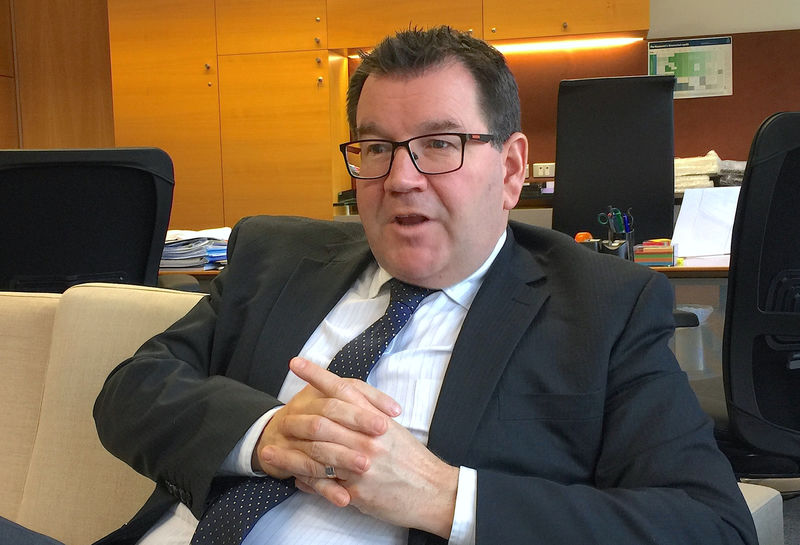 © Reuters. New Zealand’s Finance Minister Grant Robertson reacts during an interview in his office in Wellington
© Reuters. New Zealand’s Finance Minister Grant Robertson reacts during an interview in his office in WellingtonBy Charlotte Greenfield and Ana Nicolaci da Costa
WELLINGTON (Reuters) – New Zealand’s finance minister said on Friday the country’s next central bank governor must be willing to adopt his government’s plan to include employment in the bank’s mandate, and he was willing to reject any candidate who was not the “right person”.
In an interview with Reuters, Finance Minister Grant Robertson, said he had made it clear to the chair of the Reserve Bank of New Zealand’s (RBNZ) board that a willingness to focus on maximizing employment as well the bank’s inflation target was a key consideration in choosing a new governor.
Asked if he would reject the board’s recommendation for governor if the candidate wasn’t the right fit for the country’s new Labour-led government, Robertson said: “Yes I would, that’s my job … we’ve got to get the right person.”
Labour formed government last month, ending almost a decade of center-right National Party rule after an inconclusive election result that led to lengthy coalition negotiations.
Robertson has the power to accept or reject the board’s recommended candidate, with an announcement likely well before the current governor steps down in March.
The government launched a review of the RBNZ’s mandate on Tuesday, following on from Labour’s election promise to include maximizing employment as a monetary policy goal.
An acceptable candidate would have to be “willing and ready to adopt the new processes of the review,” said Robertson.
The adoption of an employment objective alongside maintaining price stability would represent a historic change for the RBNZ, the first central bank to adopt a formal inflation target in 1989.
The bank slashed interest rates to a record low of 1.75 percent last year and has said it would keep them on hold for years to allow tepid inflation to stabilize in the middle of its target band of 1 to 3 percent.
Former RBNZ governor Graeme Wheeler finished his five-year term in September, at which time the then-deputy Grant Spencer stepped up to govern the bank for six-months while the search for its new chief was underway.
Spencer has said that the bank already considers employment when setting monetary policy, and that the change is unlikely to have much impact, but Robertson said he wanted a greater focus on employment.
“It wasn’t always clear to me that (employment) had the level of consideration I think is required,” he said.
“One impact of it could be, in certain situations, looser monetary policy,” he said. New Zealand’s unemployment is currently at a nine-year low of 4.6 percent.
The new government plans to pour more money into health, education and housing, but Robertson said it was still committed to maintaining budget operating surpluses in the next five years, in the absence of major shocks.
Fusion Media or anyone involved with Fusion Media will not accept any liability for loss or damage as a result of reliance on the information including data, quotes, charts and buy/sell signals contained within this website. Please be fully informed regarding the risks and costs associated with trading the financial markets, it is one of the riskiest investment forms possible.
Source: Investing.com





























